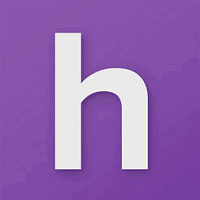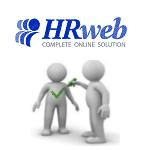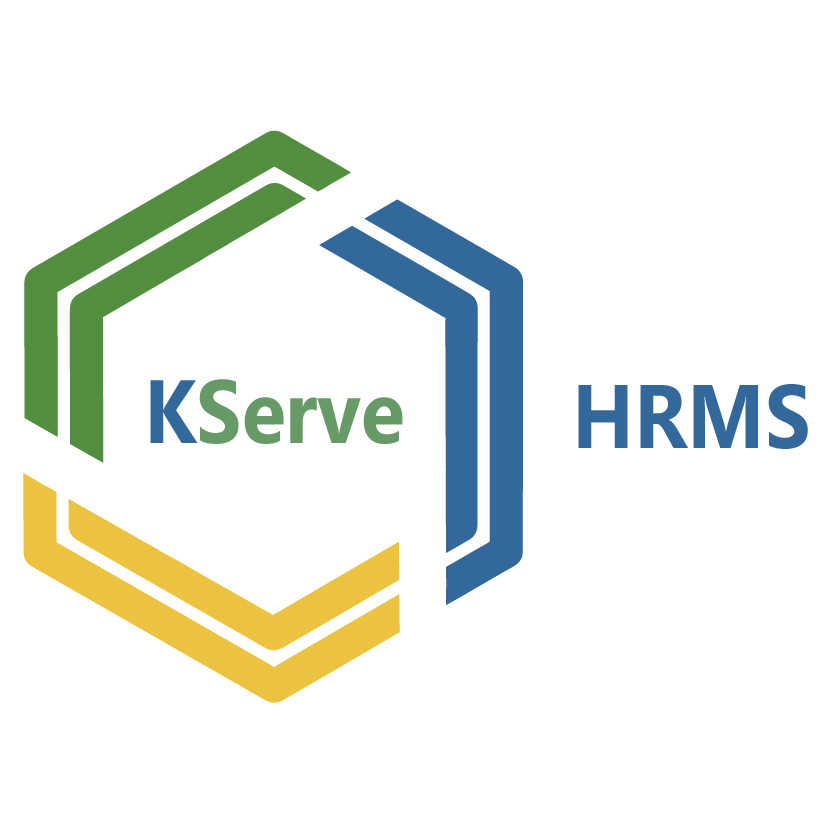Description

Homebase

HRweb
Comprehensive Overview: Homebase vs HRweb
Certainly! Let's delve into each of these workforce management and HR software solutions: Homebase, HRweb, and HRMatrix.
Homebase
a) Primary Functions and Target Markets:
- Primary Functions: Homebase primarily focuses on employee scheduling, time tracking, hiring, team communication, and compliance tools for small businesses. It offers features like schedule creation, timesheets, hiring and onboarding tools, labor cost controls, and performance tracking.
- Target Markets: Homebase targets small to medium-sized businesses, particularly in the retail, restaurant, and service industries where managing hourly workers is crucial.
b) Market Share and User Base:
- Homebase is a well-known application in the small business sector, especially in industries with a high percentage of hourly employees. While precise market share figures are not always disclosed, Homebase is a competitive player with a robust user base in its niche. Its widespread adoption in the U.S. small business market is indicative of a significant user base.
c) Key Differentiating Factors:
- Homebase stands out with its user-friendly interface and mobile accessibility, making it easy for businesses to communicate with employees. Additionally, its focus on industries with high turnover rates allows it to cater more specifically to the needs of these businesses.
- Another key factor is its freemium pricing model, which provides essential features at no cost to businesses, thereby attracting small businesses with tight budgets.
HRweb
a) Primary Functions and Target Markets:
- Primary Functions: HRweb offers tools for performance management, absence tracking, time-off management, timesheet management, and employee self-service. It provides features designed to streamline HR processes and improve employee engagement.
- Target Markets: HRweb is targeted towards small to medium-sized enterprises across various sectors that require robust HR management solutions without the complexity and costliness of high-end software.
b) Market Share and User Base:
- While HRweb may not be as widely recognized as some competitors, it serves a crucial role for SMEs looking for straightforward HR management solutions. Its user base includes companies in diverse industries looking for cost-effective HR tools.
c) Key Differentiating Factors:
- HRweb's key differentiators include its focus on affordable, simple, and efficient employee performance and attendance management. It provides essential HR features without extra complexity, appealing to businesses looking for an easy onboarding solution.
- The platform's scalability allows it to grow with smaller businesses, offering functionalities that are valuable as companies expand.
HRMatrix
a) Primary Functions and Target Markets:
- Primary Functions: HRMatrix offers a comprehensive HR management system with features for employee records management, onboarding, payroll integration, benefits administration, and performance management. It aims to provide an all-in-one solution combining HR operations into a single platform.
- Target Markets: HRMatrix targets small to mid-sized organizations across various sectors, including tech, services, and manufacturing. Its wide array of features makes it suitable for businesses that require a more integrated HR management system.
b) Market Share and User Base:
- HRMatrix, while also targeting the SME market, is noted for its comprehensive suite of features, appealing to businesses looking for a complete HR management solution. Its market share is competitive within its segment, appealing to businesses transitioning away from basic HR tools.
c) Key Differentiating Factors:
- One of HRMatrix's main differentiators is its comprehensive feature set, which includes both traditional HR functions and additional tools like project management integration and custom workflows.
- Its ability to integrate with existing payroll systems and other third-party applications gives it an edge for businesses looking for extensive connectivity.
Comparative Analysis:
Overall Differentiation:
- Homebase excels in ease of use and industry-specific needs, particularly for hourly workers, with a strong emphasis on scheduling and time tracking.
- HRweb prioritizes simplicity and affordability, making it attractive for businesses seeking easy-to-use performance and absence management tools.
- HRMatrix provides a more complete HR solution with extensive features and integration capabilities, suitable for businesses ready to streamline numerous HR functions into one platform.
Each product appeals to slightly different needs and scales within the market, catering to the size and specific requirements of enterprises in various industries. As small to medium-sized businesses increasingly adopt these solutions, the choice often comes down to the specific needs regarding complexity, industry focus, and budget.
Contact Info

Year founded :
1986
Not Available
Not Available
United States
Not Available

Year founded :
Not Available
Not Available
Not Available
Not Available
Not Available
Feature Similarity Breakdown: Homebase, HRweb
When comparing Homebase, HRweb, and HRMatrix, it's important to evaluate them based on their core features, user interfaces, and any unique functionalities they may offer. Here's a breakdown based on these aspects:
a) Core Features in Common
-
Employee Scheduling:
- All three platforms offer tools for creating, managing, and modifying employee schedules. This includes features for shift planning, notifications, and adjustments.
-
Time Tracking:
- Each software provides time tracking capabilities, allowing employees to clock in and out. This feature often includes GPS tracking for remote workers and integration with payroll systems.
-
Payroll Integration:
- They integrate with popular payroll systems to facilitate smooth payroll processing, including exporting timesheets and other employee data.
-
Absence and Leave Management:
- The platforms provide functionality to manage employee absences, leave requests, and approvals, ensuring streamlined communication between employees and management.
-
Reporting and Analytics:
- All three offer reporting tools that allow businesses to generate reports on attendance, schedules, labor costs, and other key metrics.
b) User Interface Comparison
-
Homebase:
- Known for its intuitive and user-friendly interface, Homebase offers a clean design that emphasizes ease of use, even for those without technical expertise. The dashboard is well-organized, focusing on high functionality with minimal learning curve.
-
HRweb:
- HRweb features a straightforward interface that is functional but slightly less modern compared to Homebase. It caters more to HR professionals with a focus on streamlined workflows and detailed process handling.
-
HRMatrix:
- Offers a flexible interface that can be customized to fit different business structures and needs. It may require a steeper learning curve but provides depth in its features, suited for users looking for a more comprehensive HR solution.
c) Unique Features
-
Homebase:
- Team Messaging: Offers a built-in team chat feature that supports real-time communication among staff, reducing the need for external messaging software.
- Hiring and Onboarding: Homebase includes job posting and applicant tracking features, allowing small businesses to manage recruitment directly from the platform.
-
HRweb:
- Performance Management: HRweb places a strong emphasis on performance appraisal processes, offering tools for setting goals, tracking performance, and conducting reviews.
- Employee Self-Service Portal: A robust self-service portal that empowers employees to manage their profiles, benefits, and requests directly.
-
HRMatrix:
- Customizable Workflow Automation: Offers advanced workflow automation capabilities that can be tailored to specific business processes, which might include complex approval chains and custom notifications.
- Comprehensive Compliance Management: Besides standard HR compliance, HRMatrix provides tools for advanced regulatory and compliance tracking, beneficial for highly regulated industries.
Each of these platforms offers distinct advantages, but the choice between them will ultimately depend on the specific needs and preferences of a business, as well as their budget and the complexity of their HR requirements.
Features

Team Communication
Employee Management
Time Tracking and Timesheets
Payroll Management
Easy Employee Scheduling

Not Available
Best Fit Use Cases: Homebase, HRweb
When evaluating Homebase, HRweb, and HRMatrix for human resources and team management, it's essential to consider the specific use cases and business needs each platform addresses. Here's a detailed look at how each solution might serve different types of businesses or projects:
a) Homebase
Best Fit Use Cases:
- Types of Businesses/Projects: Homebase is particularly well-suited for small to medium-sized businesses (SMBs), especially those in the retail, restaurant, hospitality, and service industries. These businesses often require robust scheduling, time tracking, and basic HR functionalities that Homebase offers.
- Workforce Management: It is ideal for organizations with hourly workers who need user-friendly scheduling and time-off management systems.
- Location-Based Operations: Businesses operating out of single or multiple physical locations can benefit from Homebase’s location-specific scheduling and communication tools.
b) HRweb
Preferred Scenarios:
- Small to Mid-Sized Enterprises (SMEs): HRweb is a solid choice for small to medium-sized enterprises looking for comprehensive HR management solutions without the complexity of larger enterprise systems.
- Compliance and Performance Management: Organizations focused on HR compliance, performance tracking, and employee evaluations will find HRweb’s tools advantageous.
- Budget-Conscious Organizations: Companies needing cost-effective HR solutions with essential features such as applicant tracking, time-off management, and performance reviews may prefer HRweb.
c) HRMatrix
When to Consider:
- Customizable HR Needs: Businesses that require highly customizable HR solutions to fit specialized workflows will benefit from HRMatrix’s flexible modules.
- Remote and Diverse Teams: Companies with a globally distributed workforce can leverage HRMatrix for its strengths in managing remote teams and multi-currency payroll.
- Scalability: Growing organizations that anticipate scaling their HR operations and need a scalable platform might choose HRMatrix to avoid transitioning to another system later.
d) Catering to Different Industry Verticals or Company Sizes
- Homebase is tailored for industries needing straightforward time and attendance management, emphasizing ease-of-use and mobile accessibility. Its primary clientele includes small businesses across retail, hospitality, and services sectors.
- HRweb focuses on small to mid-sized enterprises across various industries that need straightforward yet comprehensive HR functionalities. It offers tools supporting HR compliance and performance management tailored for companies that prefer a ready-out-of-the-box solution.
- HRMatrix, with its customizable nature, is suited for businesses across multiple industries with complex and varied HR requirements. It serves both SMEs and larger enterprises looking for a scalable solution that can grow with their business.
Each product addresses specific needs, whether it's simplifying scheduling and attendance with Homebase, managing compliance and performance with HRweb, or creating a flexible HR infrastructure with HRMatrix. Companies should consider their specific operational requirements, industry norms, and growth plans when choosing between these platforms.
Pricing

Pricing Not Available

Pricing Not Available
Metrics History
Metrics History
Comparing undefined across companies
Conclusion & Final Verdict: Homebase vs HRweb
When evaluating Homebase, HRweb, and HRMatrix, it's crucial to consider various factors such as pricing, features, scalability, user experience, and specific business needs. Here's a comprehensive conclusion and final verdict for these HR tools:
Overall Best Value
Homebase offers the best overall value for small to medium-sized businesses looking for a cost-effective yet comprehensive solution. Its user-friendly interface, rich feature set, and competitive pricing make it a strong contender across different business environments.
Pros and Cons of Each Product
Homebase
Pros:
- User-Friendly: Simplifies employee scheduling, time tracking, and team communication.
- Cost-Effective: Offers a free version with essential features and affordable upgrade options.
- Integrations: Easily integrates with multiple payroll and POS systems.
- Scalability: Ideal for small to medium-sized businesses, with features that can grow alongside the business.
Cons:
- Limited Advanced Features: Might not be suitable for larger enterprises that require comprehensive HR functionalities.
- Mobile App Issues: Some users report occasional bugs or limitations in the mobile app.
HRweb
Pros:
- Comprehensive HR Suite: Offers a broad range of features including applicant tracking, performance management, and time-off tracking.
- Customization: Allows for tailored solutions to fit specific HR needs.
- Reporting Capabilities: Provides robust reporting features for data-driven decision-making.
Cons:
- Complexity: Might have a steeper learning curve compared to Homebase.
- Higher Cost: Generally more expensive, which may not be ideal for smaller businesses.
HRMatrix
Pros:
- Advanced Features: Excels in providing advanced HR functionalities suitable for growing businesses.
- Employee Self-Service: Allows employees to manage their profiles and track performance.
- Integration and Customization: Offers great flexibility in terms of third-party integrations and custom setup.
Cons:
- Pricing: Can be expensive, especially for smaller organizations.
- Usability: The interface can be complex for users who do not have extensive HR experience.
Recommendations
-
Consider Business Size and Needs:
- Homebase is ideal for small to medium-sized businesses focused on cost-effectiveness and ease of use. It's seamless for those primarily looking to manage schedules, time tracking, and basic HR needs.
- HRweb is suited for businesses that need a broader range of HR functions and have the resources to handle a more complex system interface.
- HRMatrix is recommended for businesses that need advanced HR solutions with extensive customization options and are ready to invest in a robust system.
-
Assess Budget and Growth Potential:
- Evaluate your budget constraints and how much flexibility you need in terms of scaling the HR system as your business grows.
-
Trial and Testing:
- Utilize free trials or demos offered by these platforms to better understand which system aligns most with your operational processes and user preferences.
In conclusion, selecting the right HR product should be guided by evaluating specific business needs, budget, and long-term HR goals. Each of these tools has distinctive strengths, and the best choice often hinges on aligning these strengths with the unique demands of your organization.
Add to compare
Add similar companies



